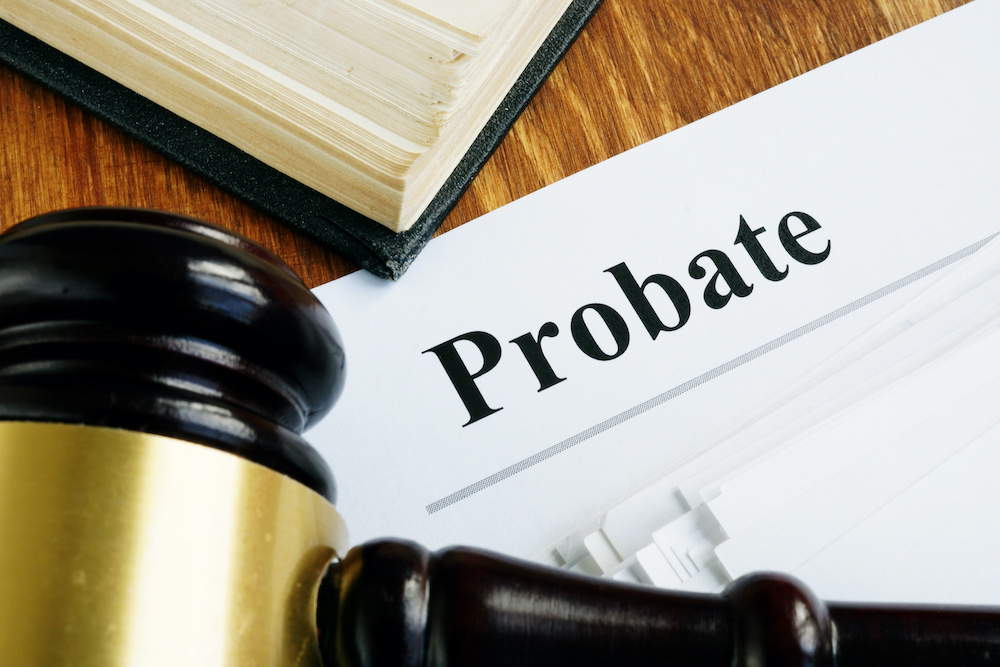
Part 3 of a 3-Part Series
Last week, in part two of our three-part post about probate-proof estates, we covered one option for avoiding probate with a strategy we called the “Piecemeal Approach.” Click here to read that post. And to catch up by reading part one, which introduced the concept of how to avoid probate altogether, click here.
This week, we finish our series by further examining pros and cons of various approaches designed to stave off the likelihood your heirs will encounter probate upon your death.
Probate Pros & Cons

For simpler or smaller estates, the piecemeal approach can be an effective and affordable strategy to bypass probate, at least for your largest and most important assets. On the other hand, this approach requires constant, vigilant updating. And, in many cases, people can overlook such updates.
- This includes a home worth $200,000, a life insurance policy for $100,000 and $100,000 in savings.
- You decide to divide your estate equally among your four children. So, you list two children as transfer on death recipients on the deed to the house. Then, you note one child as sole beneficiary on the insurance policy. Then, you create joint ownership on your savings account for the fourth child. A few years pass. During this time, you sell the house and reinvest the proceeds into stocks listed in your own name. You may also cancel the life insurance policy due to rising premiums. But you didn’t open a new one. If you pass away suddenly, without updating your estate plan, what happens?
- The child on the life insurance policy would not have an inheritance. Neither would the two kids you had listed to inherit the house. Selling the house and failing to create a TOD for them on the stocks you purchased means the only child with a secure inheritance is the one co-listed with you on the savings account. The stocks go into probate, where the other three children might eventually get a cut once fees, debts and taxes are paid.

Strategy 2: Creating a Trust
A more thorough and highly effective strategy to protect against probate is to create a revocable trust. This would encompass all your holdings. A trust is a legal structure. Property is held on behalf of beneficiaries and managed and appropriated by an appointed trustee. In a living trust, you can name yourself as trustee until you pass away or become unable to manage the trust, with exceptions. At that point, an appointed successor will take over. Under this arrangement, you have the same access to your property as you did before. When you pass away, the holdings in the trust pass to your beneficiaries per your instructions without interruption or interference from the probate courts.

More Pros & Cons
This arrangement requires time, effort and cost to initiate and fully fund. It covers all your property. But, once established, it is easily adaptable to changes in your family and financial situation, and equally easy to keep updated. A trust can also handle almost any asset and easily accommodate advanced tax planning, unlike the piecemeal approach, which we covered last week. This approach provides greater asset protection in the case of disputes. What’s more, you can even continue to grow your wealth on behalf of your beneficiaries after you die. Perhaps most importantly, a trust that is properly constructed and managed is your best protection against probate. We can help you probate-proof your estate.

Take advantage of hiring a skilled estate planning attorney to help with your estate plan. We understanding estate and tax laws, which we use to take a holistic approach. Thus, we can advise you on the most appropriate strategies and structures to preserve and grow your wealth. If you haven’t reviewed your estate plan in a while, now is time. Make sure your estate is probate-proof. Call our offices today for an appointment; we’re happy to help!
About Skvarna Law Firm in Upland and Glendora, California

A skilled attorney can assist with your estate plan. Contact us today to learn about your options (909) 608-7671. We operate offices in Glendora and Upland, California. We provide legal services for individuals living in San Bernardino, Los Angeles, Orange and Riverside Counties. This includes the cities of Upland, Ontario, Rancho Cucamonga, Fontana, Colton, Rialto, Chino, Chino Hills, Glendora, Claremont, Montclair, Pomona, La Verne, San Dimas, Azusa, Covina, West Covina, Diamond Bar, Walnut, La Puente, Corona, Norco & Mira Loma. Visit SkvarnaLaw.com to learn more.

